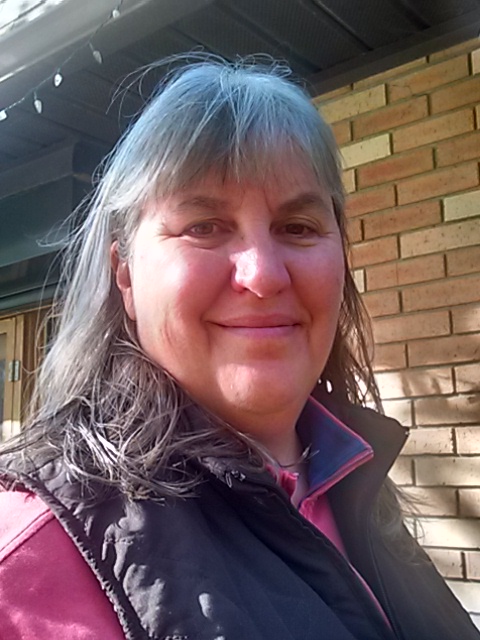There are days as I listen to mainstream news that I feel like the person in this picture. I’ve started reading the book “Maps of Time, an Introduction to Big History” by David Christian who describes the importance of “fitting in.” He writes about why Big History is important for discovering “Who am I?” “Where do I belong?” “What is the totality of which I am a part?” Christian writes that the stories we uncover about our place in the world, so called “creation myths”, are important because they fulfill our deep spiritual, psychic, and social need for a sense of place and a sense of belonging. Not knowing is harmful because it contributes to a subtle but pervasive quality of disorientation in modern life that the pioneering French sociologist Emile Durkheim referred to as “anomie.” Durkheim describes anomie as “derangement, an insatiable will, the malady of the infinite” because desire without limit can never be fulfilled; it only becomes more intense.
“Anomie is the condition in which society provides little moral guidance to individuals, the breakdown of social bonds between an individual and the community, e.g., under unruly scenarios resulting in fragmentation of social identity and rejection of self-regulatory values.” The longer I study human evolution the more I’ve come to understand the importance of “fitting in”. Our ability to feel grounded, to hold moral views that help us fit into society are a crucial necessity for humans. As highly evolved social beings we “fit in” when we have a well-developed sense of belonging, believing we understand the world and our place within it.
The difficulty I see today is the over-abundance of views to which we are exposed through social media and the internet and the lack of integration amongst them. The more information we ingest the less coherence we experience and it is becoming increasingly difficult to understand where we are headed as a society or as an individual within society. This sense of incoherence leaves us feeling confused, disconnected, and displaced. Much of the depression, anxiety, and self-destructive behaviors we witness today are likely a result.
As civilization unravels and complex social institutions disintegrate, we feel a sense of loss and descent into chaos. The election of Trump is a good example. His behaviors since taking office have upended what most of us learned to expect from our President. Each day we witness new evidence of behavior we once thought inconceivable for anyone holding public office. We may strongly disapprove of his behavior but we are forced to live with it, and it begins to change what we think of as normal.
There are many stories that no longer serve us. For example, Columbus discovered a “new” world that Europeans were entitled to exploit; the American Revolution, World War I and II proved our military superiority and started the idea of American exceptionalism, creating the perception that we could be the world’s police force. None of these myths serve to strengthen our society any longer. How much military expenditure can our government approve before we face the hard lesson that the bill from our overreach has come due? Complex social institutions we have come to depend upon are rapidly disintegrating, and Americans no longer recognize acceptable behavior or where we are headed as a society.
For some it is impossible to accept change or adapt to new realities. Some people try to solve their insecurity by holding onto a fixed world view, fighting anyone or anything that threatens it. By clinging to their view, they deny or ignore feedback. The stronger they cling to their views, the more dangerous feedback appears, and the more extreme their denial becomes. When we experience chaos and confusion, it may feel safer to hang onto old viewpoints if only to maintain some feeling of sanity. When I look at irrational behavior in this light, it is easier to understand it as an attempt at self-preservation.
As complex society comes apart, new forms of social structure emerge. We may not see the exact shape of what lies ahead, but if we are going to adapt, we need to find simple answers to living. This may be why concepts such as re-localization and intentional simplicity help us adapt to the breakdown of our global economic system. Smaller homes, renewable energy, growing food, finding enjoyment in simplicity gives us a better chance of surviving the collapse of complexity. Multiple generations sharing a home, stronger local networks, the development of a sharing or gift economy help communities become more resilient to change. We will adapt as long as we don’t succumb to extremism, bigotry, paranoia, or fear. If we insist on clinging to old ideas, past social patterns that no longer apply, we are vulnerable to decline. Inflexibility makes it unlikely that we will adapt.
The path forward isn’t always about finding solutions or passing legislation that attempts to masquerade as a solution, because most of our current problems are long past solving. We have entered the time of consequences. Understanding more about the evolution of the human species has taught me that our evolution has only partly been about finding solutions. It has also been about moving on, accepting the need to change. The story of our evolution is about our collective imagination, our ability to tell new stories of who we are and where we are heading. Strangely enough this may be our greatest strength. Humans were forced to move out of Africa away from environments and lifestyles that were unsustainable. We entered new territories and recast ourselves with new creation stories. Cultural diversity grew. We adapted throughout history whenever we faced changing environments and climate disruption by moving and becoming different people. Today there are few new environments we can move to. We must learn to stay put and adapt locally.
The decline and failure of our civilization means our story must change as the patterns we have lived with are changing. Where can we look for understanding when our world turns upside down? “Who am I? Where do I belong? What is the totality of which I am a part?” The old stories of exploitation, dominance, and unlimited economic growth no longer serve us. But neither does the story ending in collapse, fear, violence and disintegration. We need to talk about new patterns of social cohesion, new ways of living and interacting within a much diminished natural environment and adverse climate. We must find new stories of how to live within the place we occupy now.
Our story may be about harder physical work demanded of us and greater tolerance for discomfort. It will likely require having fewer things, a shorter lifespan, and living with greater sacrifice and uncertainty. But no matter what our story is, we must fit within it. There must be good reasons for going on. If we are to have a chance of adapting to the challenges we face, our story must not end with succumbing to chaos and disillusionment because that will be the end to our story not the beginning of a new one. It is only in the telling of a new story that we will find a way of avoiding anomie; derangement caused by an insatiable will and desire without limit that can never be fulfilled.
Image: The Scream (Norwegian: Skrik) one of four versions of this composition created by Norwegian Expressionist artist Edvard Munch between 1893 and 1910. The German title Munch gave these works is Der Schrei der Natur (The Scream of Nature). Public Domain






